
The band most likely to win a Scrabble tournament, The Decemberists hail from Portland, Oregon, and are notable for flaunting their extensive vocabulary in song. Despite their American heritage, they’re staunch Anglophiles; many of their early songs are set in Victorian England, while leader Colin Meloy is a fan of English folkies like Shirley Collins and Nic Jones, and other British acts like The Smiths and The Waterboys.
The Decemberists aren’t especially innovative musically – they’re a straightforward indie folk band who colour their music with accordions and fiddles. There are plenty of antecedents for their indie folk, like Neutral Milk Hotel and Belle and Sebastian, and Meloy’s braying voice has similarities to Jeff Mangum’s.
I sincerely enjoy The Decemberists, but you might want to bear in mind that as a bearded history graduate, I’m their target demographic. But I enjoy their wordplay, and they’ve built up a consistent body of work since 2002’s Castaways and Cutouts. While they’re broadly categorised as folk-rock, their work runs the gamut from the concise and hooky Americana of 2011’s The King is Dead to the dense 2009 progressive rock opera The Hazards of Love. The group’s output has slowed recently, as Meloy has worked on other projects like children’s literature. The group’s lineup has remained unchanged since 2005; Meloy is joined by Chris Funk on guitar, Jenny Conlee on keyboards, Nate Query on bass, and drummer John Moen.
Decemberists Album Reviews
5 Songs | Castaways And Cutouts | Her Majesty The Decemberists | The Tain | Picaresque | The Crane Wife | The Hazards of Love | The King is Dead | What a Terrible World, What a Beautiful World | I’ll Be Your Girl
Favourite Album: Castaways and Cutouts
Overlooked Gem: The Tain
5 Songs
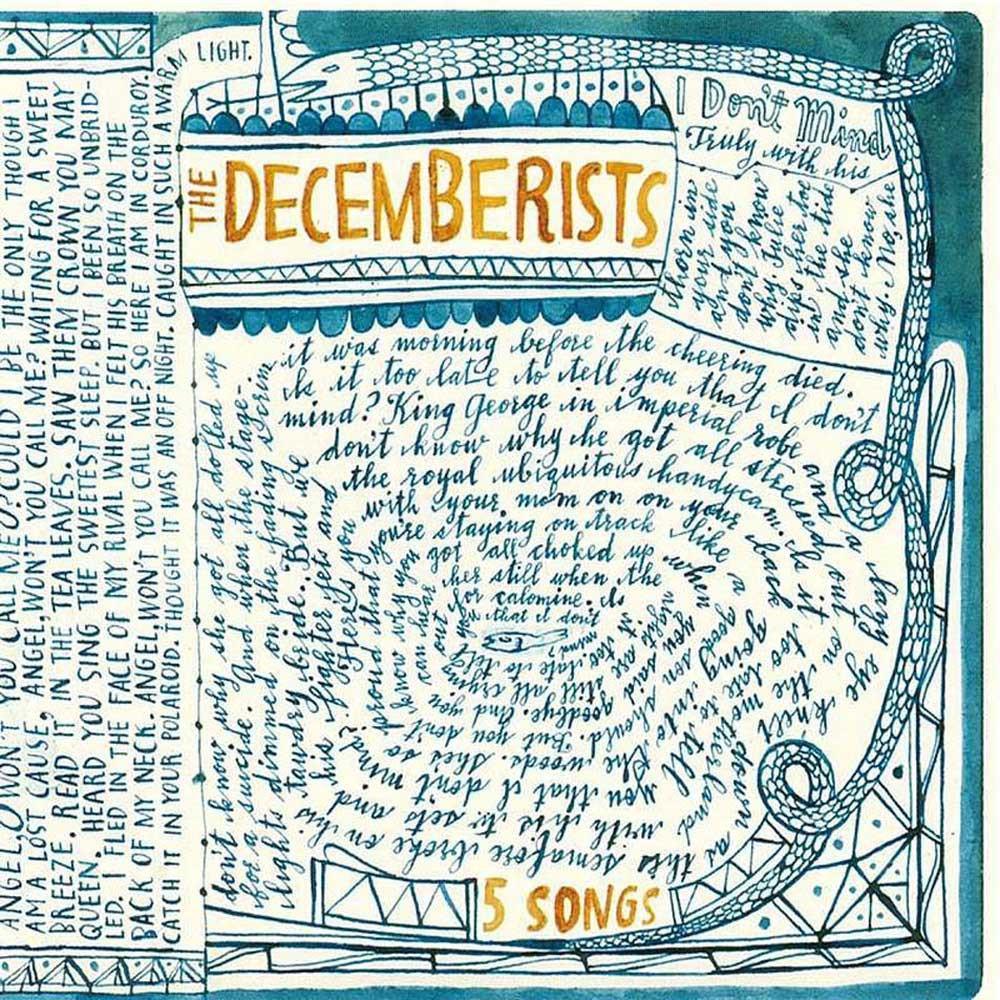
The Decemberists’ confusingly titled debut EP now features six songs; the 2003 edition added ‘Apology Song’. It’s one of those debut EPs that shows a group’s development; here The Decemberists are a straightforward indie folk-rock outfit, that hadn’t fully committed to their epic historical and theatrical shtick. ‘My Mother Was A Chinese Trapeze Artist’ is certainly a portent of things to come – it’s a strong piece, and the title alone is representative of their future direction.
Elsewhere, the record is tuneful and enjoyable. Opener ‘Oceanside’ is deceptively short at a minute and a half, fading out while still in full bloom. My other favourite song is the late addition, ‘Apology Song’, an unusually personal song where Meloy apologises for not properly looking after his friend’s bicycle.
It’s not as essential as most of their full length records, but 5 Songs is an enjoyable listen, a fascinating step in the group’s development.
Castaways And Cutouts
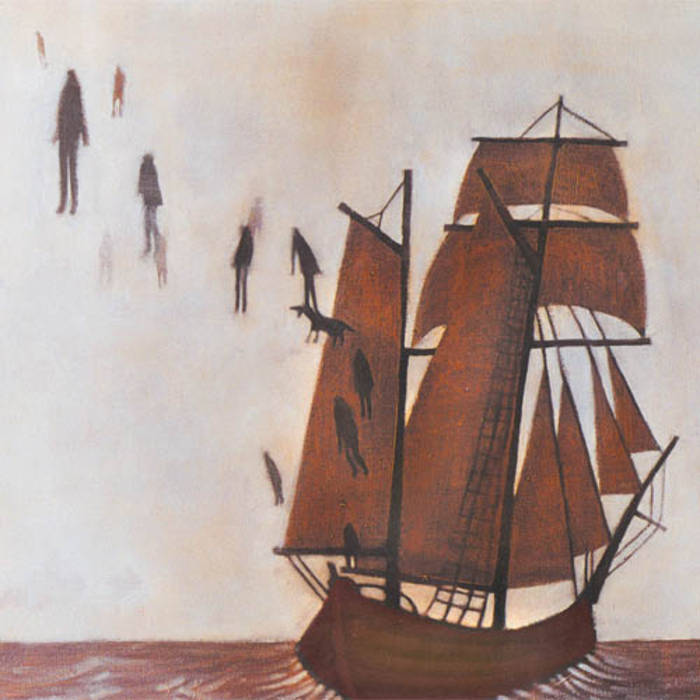
The Decemberists’ first LP, Castaways And Cutouts, is a remarkably assured debut, with the band’s bookish folk rock style already fleshed out. ‘Leslie Anne Levine’ is a perfect, evocative opener (“My name is Leslie Anne Levine/My mother birthed me down a dry ravine/My mother birthed me far too soon/Born at nine and dead at noon”), with a nice chord progression that sets the tone for the rest of the record.
‘Here I Dreamt I Was An Architect’ skims along on pretty guitar arpeggios and warm organ textures, while ‘July, July!’ is as close as the band come to a rock song. ‘Odalisque’ and ‘Cocoon’ are both gorgeous, and while ‘Grace Cathedral Hill’ isn’t the best song written about the San Francisco landmark (see the Red House Painters first self titled record) it’s still heartfelt and the ten minute closer ‘California One/Youth and Beauty Brigade’ is also extremely convincing. A couple of the accordion based pieces (‘Legionaire’s Lament’, ‘A Cautionary Song’) aren’t as pleasantly engaging as the rest of the record, but they also play an important role in shaping the band’s identity.
Castaways And Cutouts largely eschews gimmicky tracks in favour of solid songs; it’s a remarkably assured debut.
Her Majesty The Decemberists
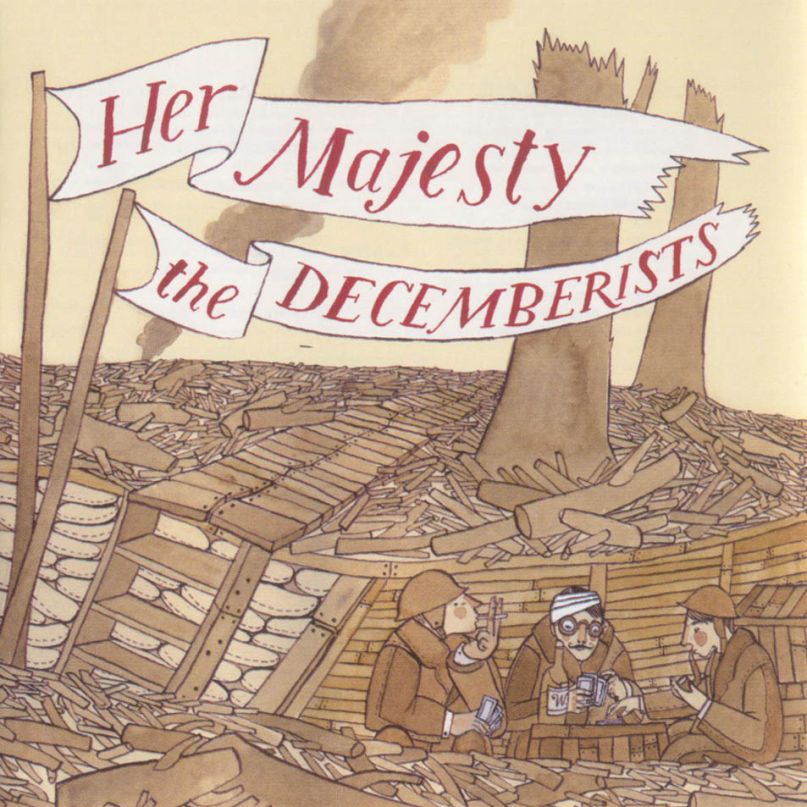
After the freshness of Castaways And Cutouts, there’s something less appealing about sophomore effort Her Majesty The Decemberists, as if the band let their mid-nineteenth century Victoriana whimsy distract them. The salty opener ‘Shanty For The Arethusa’ has an appealingly epic quality, and ‘The Chimbley Sweep’ hops along nicely on its accordion groove, but both can be grating and both feel like the band is on the verge of parodying itself.
Most of standouts from Her Majesty The Decemberists are in the vein of their first album. ‘The Bachelor And The Bride’ has a great chord progression, propulsive acoustic guitar, great support parts with warm organ and guitar arpeggios, all adding up to create a subtly masterful song. The catchy ‘Los Angeles, I’m Yours’ opens into a fantastic string break mid song, ‘Billy Liar’ grooves along nicely on its piano base, ‘Song For Myla Goldberg’ is energetic and infectious, and ‘Red Right Ankle’ is stripped back and affecting. More problematically ‘Shanty For The Arethusa’ does set an interesting tone, but also drags, unless you really like sea shanties, while the low-key closer ‘As I Rise’ isn’t particularly convincing either.
Her Majesty The Decemberists overemphasises The Decemberists’ eccentricities to such an extent that it almost overshadows the musical content.
The Tain
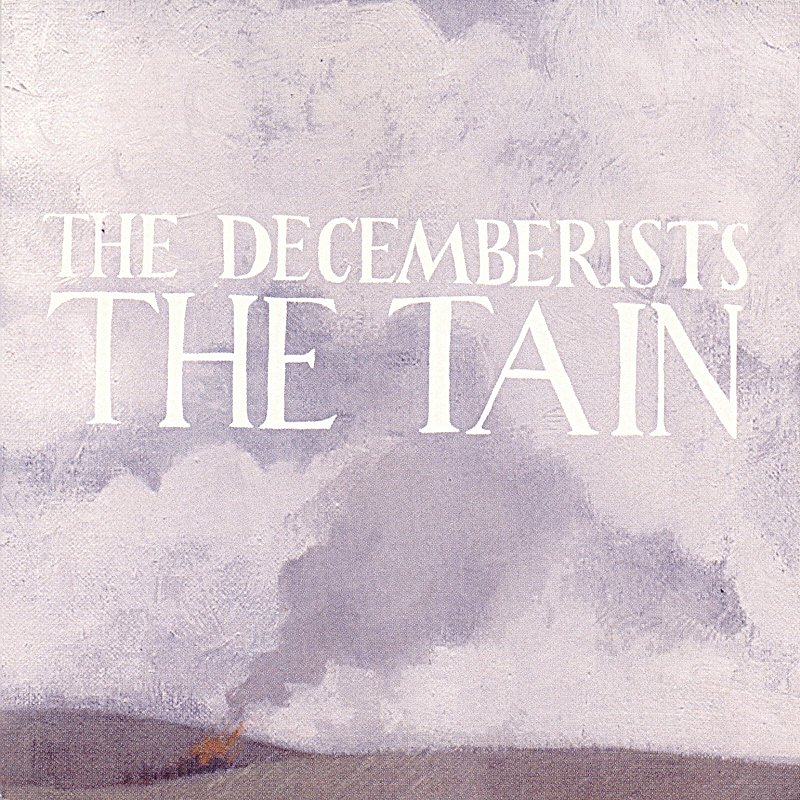
A one song EP recorded in two days might seem negligible, but the one song that constitutes The Tain is a genuine tour de force, an eighteen minute, five part, suite based on an ancient Welsh legend. If that sounds like a throwback to the heyday of 1970s progressive rock, that’s precisely correct – The Tain is the Decemberists’ equivalent to Genesis’ ‘Supper Ready’ or the first half of Jethro Tull’s ‘Thick As A Brick’.
If a comparison to canonised works by men with much longer beards seems hyperbolic, The Tain is an extremely coherent, memorable concept record that meets its goals perfectly. The Decemberists have the structure and feeling of the progressive rock suite down pat; rolling through an ominous opening section, head banging second part, mournful third part, fruity fourth part, and ending with a suitably rousing climax. The beauty of such a long song is that it allows scope for much more extremity than on regular four minute songs – for instance, a huge dramatic climax that wouldn’t be feasible in a four minute pop song, unless you’re Celine Dion, is necessary here and it’s executed brilliantly. The electric riffs of Part II are far heavier than anything else in The Decemberists’ catalogue, with some great fills from drummer Rachel Blumberg, while Blumberg also gets a sole writing credit and vocal on the fourth section.
The story’s difficult to follow, and you probably don’t want to pay too much for a sub-twenty minute EP, The Tain is a great little record that’s quintessentially Decemberists, but which breaks new ground for them and which they’d explore further in 2009’s The Hazards of Love.
Picaresque
2005, 8/10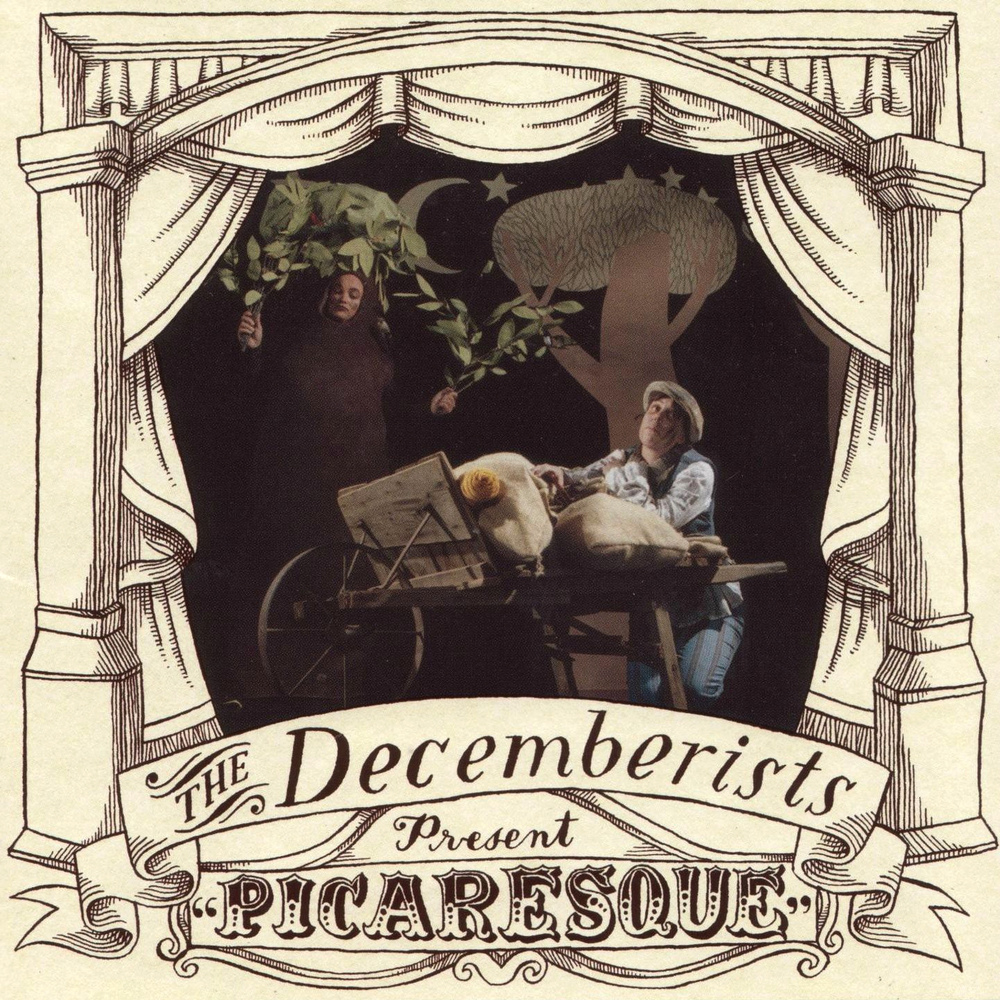
Picaresque showcases a sunnier and poppier Decemberists; unlike Her Majesty, the best songs here are often when they depart the furthest from the previous Decemberists’ style. These songs are often less complex – apart from the multi-part ‘The Bagman’s Gambit’ and the lengthy ‘Mariner’s Revenge Song’, they’re largely conventional verse/chorus structures. The group also use more outside musicians than before, with orchestration, and a horn section on ’16 Military Wives’. The net result is The Decemberists’ most accessible album yet – with less archaic lyrics and less braying vocals, some of these songs sound like they could be potential radio hits.
The most accessible material includes the gorgeous, acoustic ‘The Engine Driver’, with its harmonised “If you don’t love me/Let me go” chorus, and ‘On The Bus Mall’ which mines a similar acoustic vein. Less characteristically, ’16 Military Wives’ and ‘The Sporting Life’ are both upbeat and infectious, the former with nonsensical lyrics, a Fender Rhodes groove, and a punchy, horn driven chorus , while the latter feels like a Decemberists’ take on a sixties Motown groove. ‘The Infanta’ does a much better job of the dramatic album opener than ‘Shanty For The Aretheusa’ did on the previous record, while ‘We Both Go Down Together’ is punctuated by a beautiful string part. There is one major misstep on Picaresque in the form of the nautical shaggy dog tale ‘The Mariner’s Revenge Song’; while it is entertaining, it is very reliant on its narrative for effect, so that it doesn’t stand up to repeat listens.
Like The Decemberists’ previous full length album, Picaresque can be frustrating – there are some genuinely inspired songs here, but it’s more patchy than it needs to be from a vibrant band seemingly at the peak of their powers.
The Crane Wife
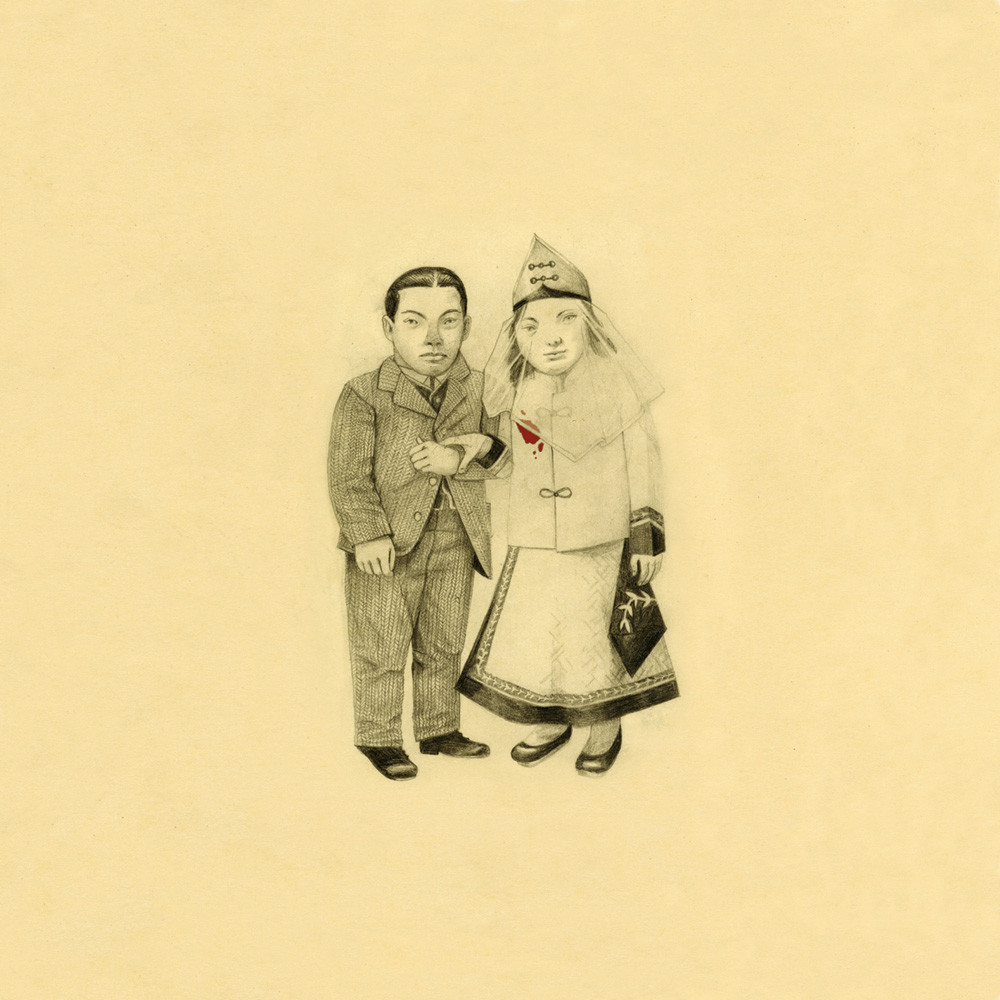
The Crane Wife is the Decemberists’ first album with major label Capitol, and while it placed higher on the US charts than any of their previous efforts, otherwise it’s business as usual for the band. If anything, The Crane Wife is more cohesive than anything since Castaways and Cutouts. This impression is helped by the two pieces that bookend the album and set the tone; the opening ‘The Crane Wife 3’ and closing ‘Sons and Daughters’ are both based around acoustic folk arrangements. The record centers on two song cycles, The Crane Wife and The Island – the former a Japanese folk tale, and the latter based on Shakespeare’s The Tempest. The shorter songs that make up the rest of the album aren’t thematically connected as far as I can tell, and feel much more like the album tracks from Picaresque, but mostly they’re top notch and largely acoustic based, which means they fit in just fine.
The absolute highlight, however, on The Crane Wife is the twelve minute prog-rock opus, ‘The Island’. The two parts of the title track (confusingly, ‘The Crane Wife 3’ opens the record) are wistful and acoustic, and altogether the two song cycles take up nearly half of the hour long record. Among the shorter songs, the call and response vocals of ‘Yankee Bayonet (I Will Be Home Then)’, the heavy electric grind of ‘When The War Came’, and the jaunty, spry ‘Summersong’ are all highlights.
The Crane Wife is the peak of The Decemberists’ early, prolific phase, and it’s one of the finest records in the Decemberists’ catalogue.
The Hazards of Love
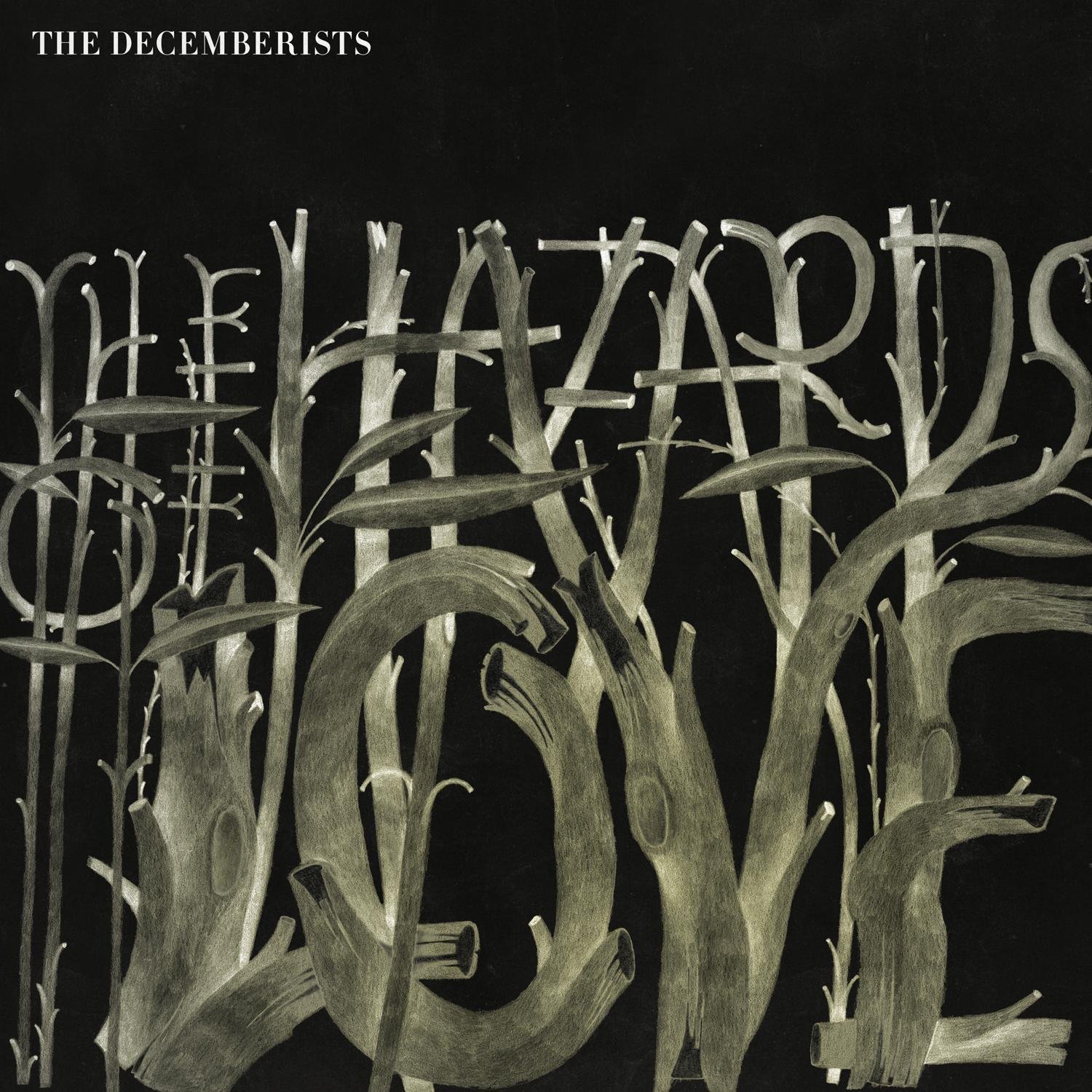
There were hints of a rock opera in The Decemberists’ earlier work; The Tain was a twenty minute single song, and parts of The Crane Wife were also long suites. But The Hazards of Love takes these flirtations into an hour long rock opera with multiple vocalists and repeated themes. Joining Colin Meloy are Becky Stark of Lavender Diamond, Shara Nova of My Brightest Diamond, and Jim James of My Morning Jacket, playing the characters including a shape-shifting forest dweller and the Forest Queen.
Like The Tain, there’s plenty of influence from 1970’s progressive rock – Jethro Tull is the most obvious touchstone given the similarity of Meloy’s vocals to Ian Anderson’s. But there’s also crunching blues rock on songs like ‘The Wanting Comes In Waves’, and British folk on songs like ‘Annan Water’. There’s plenty to like on songs like the concluding ‘The Hazards Of Love 4 (The Drowned)’, where Meloy strains his high vocals
As a full length album, The Hazards Of Love isn’t as successful as their shorter forays into epics – even though it’s substantial, it also feels repetitive. The repetition of musical themes is obviously an element of rock operas – I have similar issues with notable rock operas like Tommy and The Wall, but it means that The Hazards Of Love is one of my less favoured Decemberists’ albums.
The King is Dead
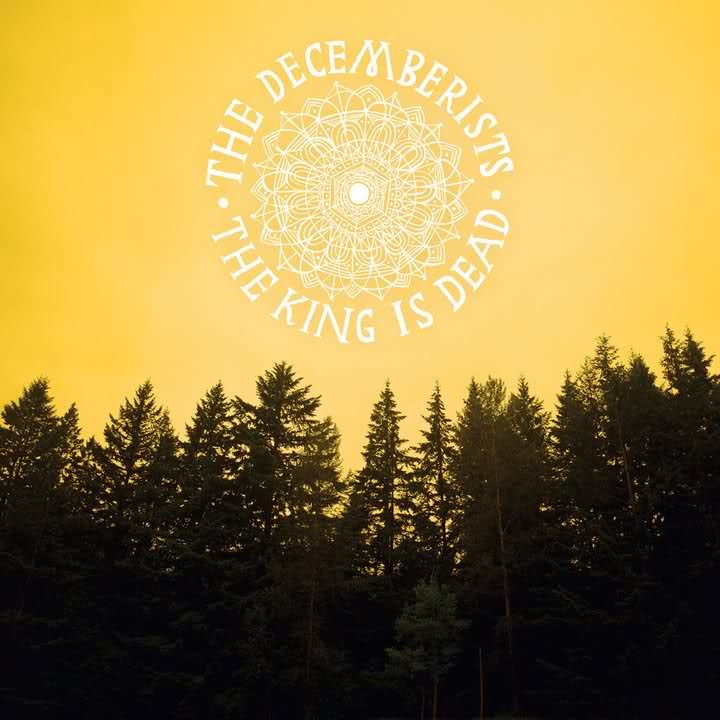
After the ambitious The Hazards of Love, the Decemberists’ sixth studio album was a much more straightforward effort, with a succinct ten tracks and forty minutes of running time. After sounding primarily British for most of their career, The King Is Dead is steeped in American tradition.
R.E.M.’s Peter Buck and the duo of Gillian Welch and David Rawlings all guest, and these collaborators are a good indication of the sound of the resulting album; The King Is Dead is reminiscent of R.E.M.’s melodic, low-key albums from the 1980’s and of the plaintive Americana of Welch’s solo albums.
There are plenty of great songs – the fun hoe-down of ‘Rox In The Box’, the insistent ‘Down By The Water’, and the low-key, pretty ‘January Hymn’. The only misfit is ‘This Is Why We Fight’ – it’s a good song, but doesn’t fit the pastoral mood of the remainder of the disc.
The King Is Dead is the Decemberists at their least idiosyncratic and least ambitious, but this simply emphasises the pretty melodies and hooks that have always been present in their music.
What a Terrible World, What a Beautiful World

After a four year break, during which keyboardist Jenny Conlee successfully battled breast cancer and Colin Meloy published a trilogy of children’s fantasy novels with his wife, The Decemberists returned with What a Terrible World, What A Beautiful World. It explores similar Americana territory to The King Is Dead, but it’s a more personal set of songs from Meloy,; it’s more like the work of a singer-songwriter than the dramatic territory that’s typical of Decemberists’ albums.
The most immediate, catchiest songs like ‘Make You Better’, ‘Philomena’, ‘A Beginning Song’, and ‘Cavalry Captain’ are the strongest. The violin hook of ‘Cavalry Captain’ drives one of the group’s most memorable songs, and there’s a nice Johnny Marr style jangle on ‘The Wrong Year’. The song ’12/17/12′ contains the lyrics “What a Terrible World, What a Beautiful World”, and references President Obama’s reaction to the Newtown School shootings.
What a Terrible World, What a Beautiful World does feel insubstantial outside its generous handful of instantly memorable songs, and it rates as one of The Decemberists’ lesser, and less imaginative, albums. It’s worth hearing its best moments, but there’s not enough great material on it to justify 57 minutes of running time. It would be great to hear the band attempt something more ambitious next time around.
I’ll Be Your Girl

Like the two albums before it, I’ll Be Your Girl drops the big concepts and functions simply as a collection of songs. It’s often dark in tone, with songs like ‘Severed’ and ‘Everything Is Awful’, and Meloy has stated that the songs were written in reaction to the 2016 US election. The most talked about development in the band’s sound is the addition of synths to the band’s sonic palette – while it’s not necessarily what you’d expect from a folk oriented group, the band stated that it’s a consequence of their enjoyment of New Order and Depeche Mode in their youth. The synths only appear on a few tracks, and I enjoy the way they build the opening track, the strum of ‘Once In My Life’. More problematic is the relatively simple nature of these songs – they’re not as immersive as the group’s best work, and the album feels disjointed as they try a bunch of different ideas.
The one song that does rank among the group’s all time best is the eight minute Slavic murder ballad ‘Rusalka, Rusalka / Wild Rushes’, an entrancing piece that harks back to the days of The Hazards Of Love. Elsewhere, the group’s harmonies have never sounded bigger and better than on ‘Sucker’s Prayer’, while the opening pair of ‘Once In My Life’ (which Meloy co-wrote with Ira Kaplan and Georgia Hubley from Yo La Tengo) and ‘Cutting Stone’ are among the album’s best.
With the disjointed nature, and with Meloy working on other projects like young adult fiction, it’s reasonable to conclude that The Decemberists aren’t an all consuming passion, but there are still sparks of life here.
Favourite Ten Decemberists Songs
Lesley Anne Levine
Sleepless
The Island
Here I Dreamt I Was An Architect
The Tain
Rusalka, Rusalka / Wild Rushes
The Engine Driver
16 Military Wives
Rox In The Box
Yankee Bayonet (I Will Be Home Then)
One of my favourite Decemberists’ songs is only found on a compilation:
Return to 2000s Reviews
One comment
Leave a Reply
Related Pages
About
Aphoristic Album Reviews is almost entirely written by one person. It features album reviews and blog posts across a growing spectrum of popular music.
Review Pages
Read about the discographies of musical acts from the 1960s to the present day. Browse this site's review archives or enjoy these random selections:
Blog Posts
I add new blog posts to this website every week. Browse the archives or enjoy these random selections:
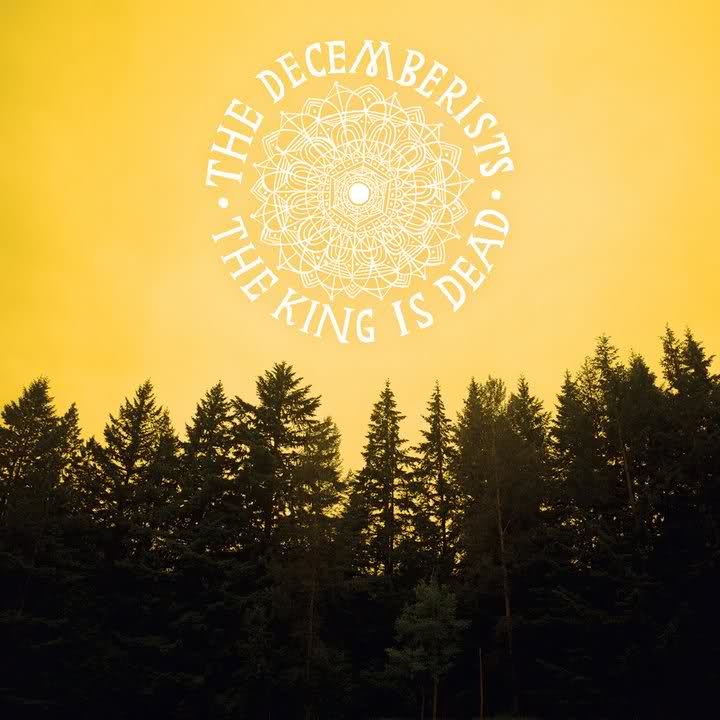
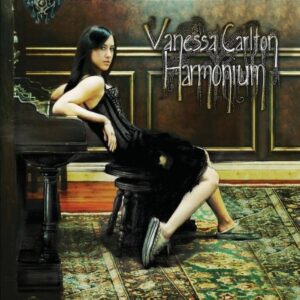



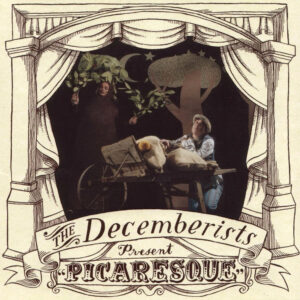
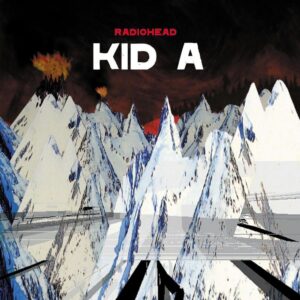
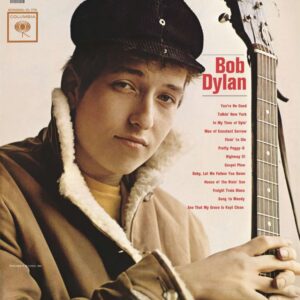

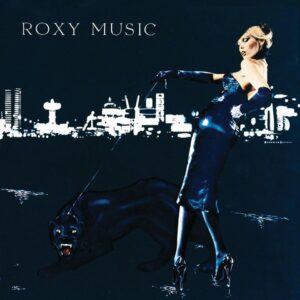

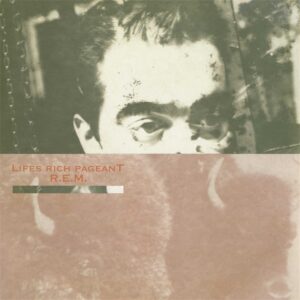
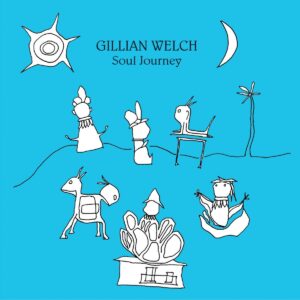
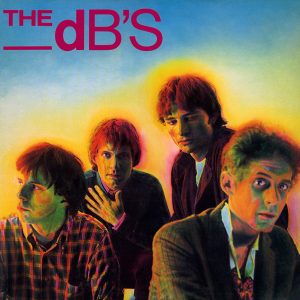
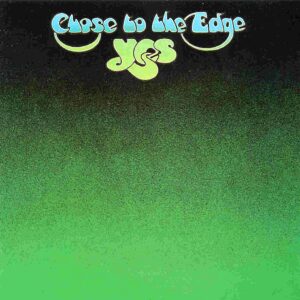
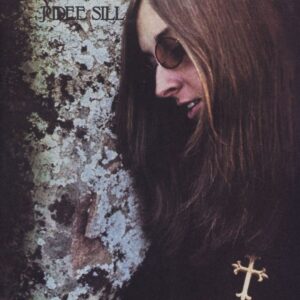
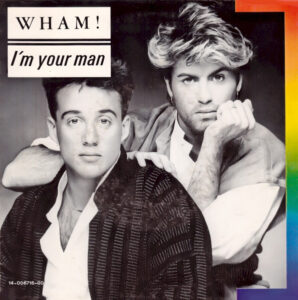
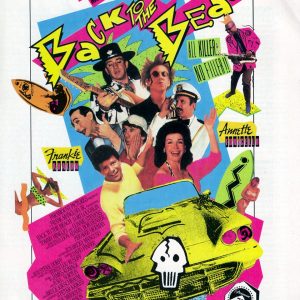
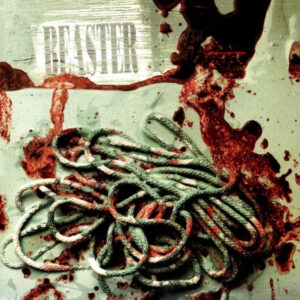
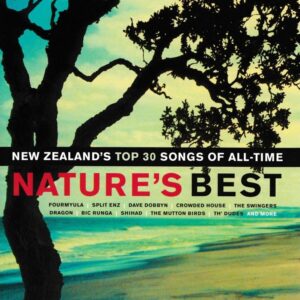




I love The Decembrists! They were the first concert I ever saw back in 2011, and I was completely floored by Colin Meloy. Years later I’m studying English and History in school and I still am floored by Colin Meloy.